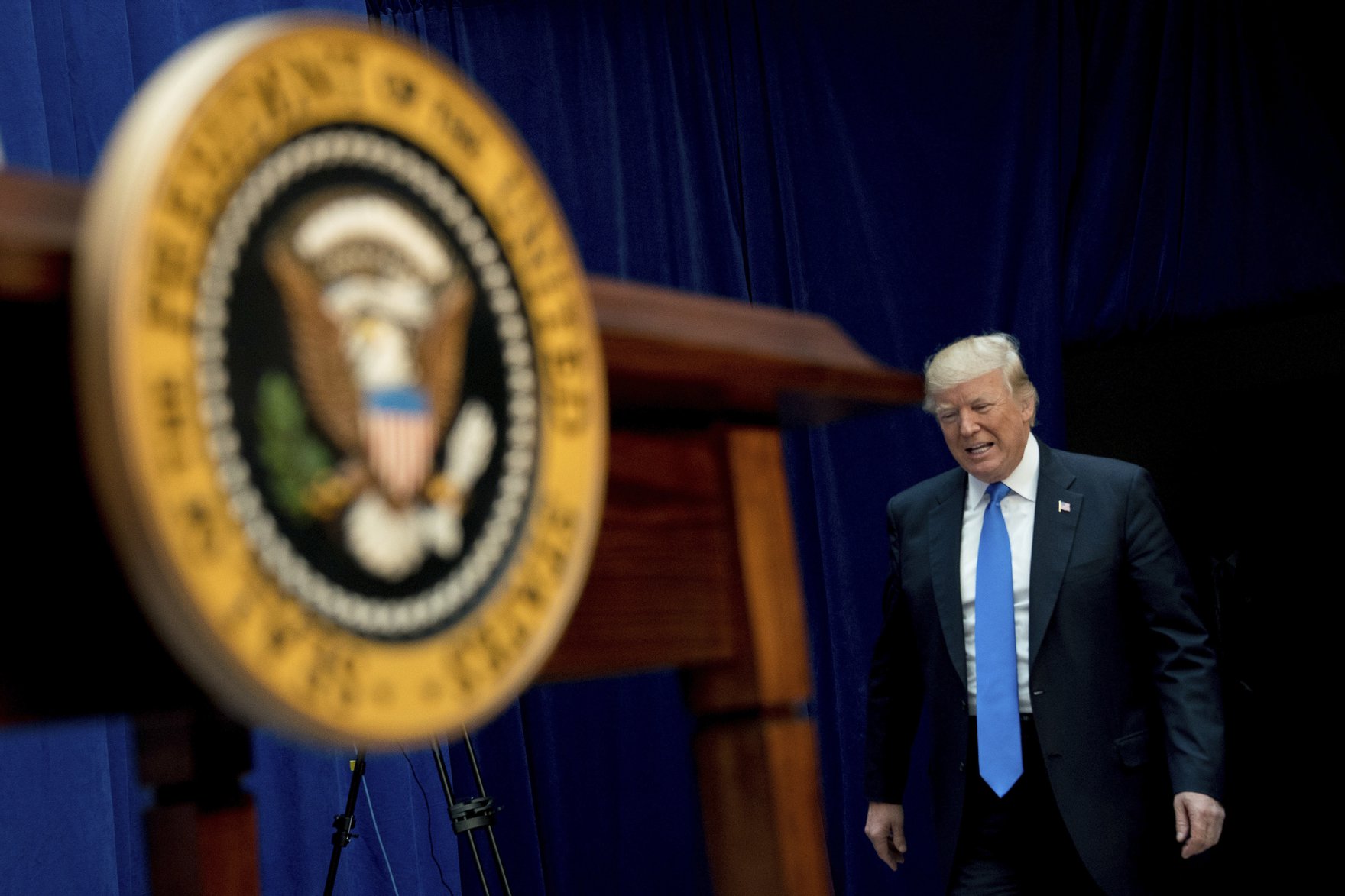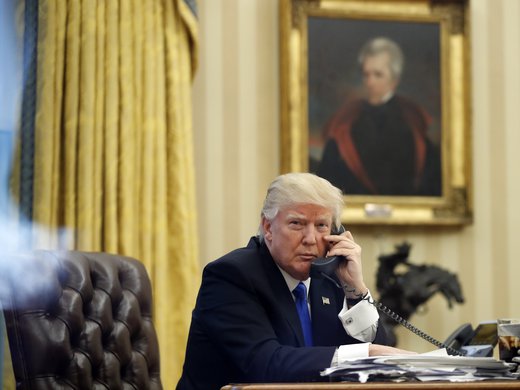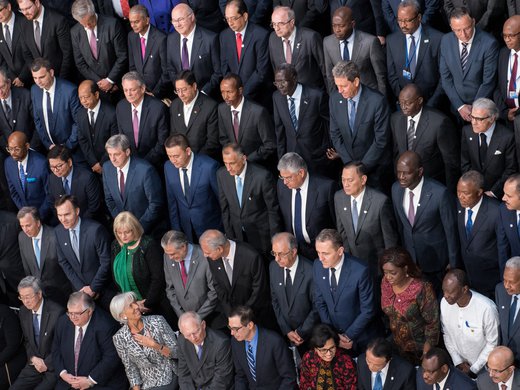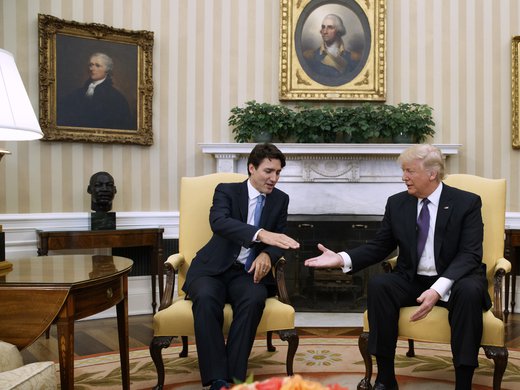At a Brookings Institution seminar in Washington, DC, a year ago, Harvard economics professor and former Treasury Secretary Larry Summers warned that the biggest economic threat facing the United States was Donald Trump and the political risk of “creeping ignorant fascism” he represented. At the time, many in the audience surely thought Summers was engaging in rhetorical hyperbole. I suspect fewer would think that today.
With the passage of time, Summers appears positively prescient. The firing of Federal Bureau of Investigation (FBI) Director James Comey in early May has probably changed many minds. Of particular concern is the reported attempt to secure the former director’s oath of loyalty to the president. As a friend — an Argentine working for one of the Washington-based international financial institutions — pointed out the other day, the firing of the FBI director was reminiscent of past politics in his country.
The point I think my friend was making is that Trump’s erratic and seemingly unanchored decisions are characteristic of weak democracies and political strongmen. The United States is a nation of laws, in which public officials vow to defend the Constitution. The very idea of swearing loyalty to the incumbent of the White House, whoever that may be, would likely have been anathema to the founding fathers. Moreover, the president’s actions could threaten the very foundations on which the unparalleled prosperity of the United States is based.
To see this, consider the fact that Trump’s firing of Comey isn’t particularly surprising at this point. In fact, it is wholly consistent with the modus operandi of his campaign, which entailed either a conscious or unwitting attempt to undermine key institutions of democratic government: a vigorous free press that holds politicians accountable, and an independent judiciary. Congress was largely spared from candidate Trump’s corrosive barbs.
No longer.
Frustrated by the failure of his legislative agenda, the president has seemingly set his sights on Senate rules that will make it more difficult to pass the repeal and replacement of the Obamacare health care and reform law. The Senate should, he asserted recently, simply ignore its requirement of 60 or more votes on non-budgetary legislation. This would make it easier to pass legislation without the need to build a coalition with more moderate members of the Grand Old Party and Democratic senators. It is probably not coincidental that the timing of the Trump entreaty aligned with the Senate majority leader’s admission that he will have difficulty corralling enough moderate Republican senators to pass the House Bill without a fundamental rewrite.
The problem isn’t just that Trump’s call to overturn the super-majority requirements is contrary to Senate tradition; indeed the very role of the Senate. As the reputed “most deliberative body in the world,” the members of the US Senate have traditionally taken pride in their institution and its insulation from the political passions of their House counterparts. The Senate’s more cautious approach to legislating, which includes deal making and coalition building, is part of the system of checks and balances that is the genius of the fathers of the constitution.
The problem with the president’s proposal is that it ignores the fact that the status quo is intentionally designed to promote inertia. Make no mistake, the resulting deliberate and sometimes desultory process has frustrated White House incumbents from both parties over the years, but for much of the republic’s history it has also fostered growth and prosperity. This felicitous result reflects the fact that the system promotes stability of legal frameworks and policies; that stability, in turn, provides the basis for long-term decision making.
In less fortunate lands that are subject to arbitrary and capricious changes in policy frameworks, investments that may be profitable today may be unprofitable under a different policy regime. If underlying policy frameworks are subject to the erratic whims of the chief executive, investment will be lower and savings will flow to other jurisdictions offering more stable policy environments. In part, that is why the United States has historically been able to draw on the savings of others, including poorer countries where capital-to-labour ratios are lower and expected returns on investment should be higher. This difference in capital-labour ratios should, in theory, result in capital flowing “downhill” from the rich country to poor countries. Global capital flows, unlike water, in fact flow uphill.
Another reason that the United States has been able to draw on global savings is the special role accorded the US dollar as international reserve asset, medium of exchange and unit of account. Central banks around the globe hold US dollar–denominated reserves because of the dollar’s role as traditional safe haven to which international investors flee in periods of uncertainty and the liquidity of these assets. At the same time, the fact that a large share of international trade is expressed in US dollars, and payments conducted in US funds, reflect a special role (which some, such as Charles de Gaulle’s financial adviser, have viewed as an “exorbitant privilege”) given to the US dollar in post–World War II international monetary arrangements.
The United States has been able to retain this unique role for the dollar over the past seven decades because of confidence in key policy frameworks. Two elements of this framework are especially important: monetary policy that keeps the value of the dollar, expressed in terms of domestic prices, broadly stable; and fiscal policy that is consistent with this price stability objective. For much of the past 70 years, these conditions have been met, and when one or both was at risk the system responded to preserve stability. When inflation threatened to get out of hand in the late 1970s, for example, Paul Volcker raised interest rates to unheard-of levels, putting the economy into a punishing recession, in order to reduce inflation and wring out inflationary expectations. And when budget deficits resulting from his massive cuts undermined long-term fiscal sustainability, Ronald Reagan reversed himself and scaled back his own tax cuts. Reagan raised taxes on pressure from Congress and because the Fed would have likely raised interest rates to prevent large budget deficits fueling inflation.
Both episodes illustrate the role of the system in preserving the stability of policy frameworks. The system has been tested before: the Watergate scandal, which brought down the presidency of Richard Nixon, revealed the strength of the Constitution’s checks and balances, even in dealing with the “high crimes and misdemeanors” of a sitting president. But how robust is it to potential shocks from the Trump administration?
The question is not purely hypothetical. After all, if the Senate is prepared to change its rules to advise and consent to a Supreme Court nominee, why not revise other rules to allow for a simple majority on other matters? And if the Senate were to agree to the president’s demands on changing the rules of the senior chamber, it might agree to the appointment of a Federal Reserve Board chair and other Fed members more pliant to demands for accommodative monetary policy, say, when tightening might be more appropriate. Or, Congress could ignore its own rules on budget making, which were introduced to provide a long-term (or at least a 10-year) fiscal anchor in response to past episodes of fiscal excesses.
This is conjecture. But that doesn’t mean that it is impossible. After all, a year ago, the election of a political neophyte who broke all established political norms was widely judged impossible. And should this speculative scenario come to pass, it could pose a risk to long-term US economic interests.
Trump defends his disruptive approach to decision making by saying that he wants to help Americans — to make America great again. That is a noble cause. But he does that cause great disservice by undermining the very foundations of American prosperity and the reasons why the United States has served as a model for the rest of the world for almost 250 years.
The loss of key macroeconomic anchors would undermine the basis for US financial exceptionalism. Rather than making America great again, that would make America just like any other large industrial country: important, to be sure, given its size, but no longer a global economic and financial hegemon with oversized influence in shaping the rules of the global economy. In a sense, that would be consistent with the diminished international role the president and his advisers seemingly seek.



